“A young man sporting a rainbow pendant stands before the altar of the Wei-ming temple on the outskirts of Taipei, holding aloft a football-sized box full of prayers written on pieces of paper. A priest sets the box ablaze, reciting Taoist chants as it burns to ashes. Flames leap up in quick bursts, an apparent sign that the Rabbit God has received his adherent's petitions. Wei-ming temple is a house of Taoist worship with a twist – almost all of its congregants are gay. The shrine, down a narrow alleyway in a bustling district of New Taipei City, is dedicated to a deity who has watched over homosexuals for four centuries. “In Chinese history, «rabbit» was a derogatory term for homosexuals”, said Lu Wei-ming, who founded the temple in 2006, at a time gays were excluded from most religious ceremonies.
Lu, who has taken a vow of celibacy and declined to answer questions about his sexuality, said he wanted to create a welcoming environment for a flock that had long been ostracized. “This was a group with no one to look after them, and I wanted to fill that void”, said the 28-year-old priest, adding that Wei-ming is the world's only shrine for homosexuals. Liberal attitudes have led to the flourishing of gay culture on the island nation, with Taiwan's parliament debating a bill that would make it Asia's first to legalize same-s*x marriage. Lu said mainstream Taoist society remains stuck in a conservative mindset, although the most vocal opposition to Wei-ming temple has come from members of Taiwan's small yet active Christian community. Lu described instances of Christian activists protesting in front of the temple, including one pastor who attempted to perform an exorcism before the altar of the Rabbit God”. – Tony Tharakan and Jeremy Laurence via Reuters
Lu, who has taken a vow of celibacy and declined to answer questions about his sexuality, said he wanted to create a welcoming environment for a flock that had long been ostracized. “This was a group with no one to look after them, and I wanted to fill that void”, said the 28-year-old priest, adding that Wei-ming is the world's only shrine for homosexuals. Liberal attitudes have led to the flourishing of gay culture on the island nation, with Taiwan's parliament debating a bill that would make it Asia's first to legalize same-s*x marriage. Lu said mainstream Taoist society remains stuck in a conservative mindset, although the most vocal opposition to Wei-ming temple has come from members of Taiwan's small yet active Christian community. Lu described instances of Christian activists protesting in front of the temple, including one pastor who attempted to perform an exorcism before the altar of the Rabbit God”. – Tony Tharakan and Jeremy Laurence via Reuters
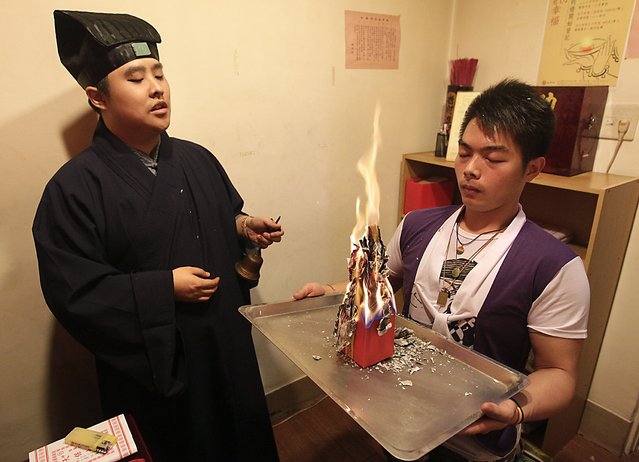
Lu Wei-ming (L), priest of the Wei-ming temple, and a worshipper burn a Taoist paper amulet during a prayer ritual at the temple in New Taipei city January 8, 2015. The shrine, down a narrow alleyway in a bustling district of the city, is dedicated to a deity who has watched over homosexuals for four centuries. Priest Lu founded the temple in 2006, at a time gays were excluded from most religious ceremonies. (Photo by Pichi Chuang/Reuters)
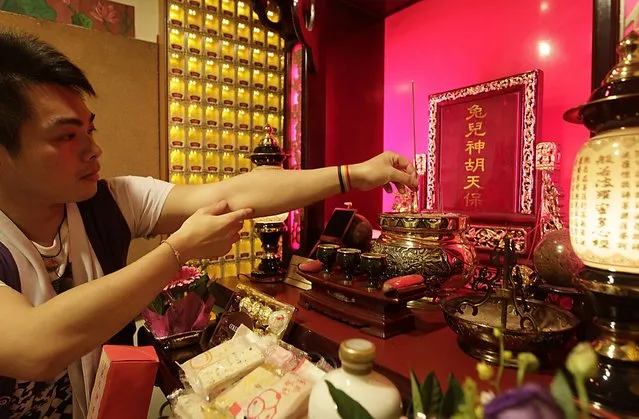
A worshipper offers incense sticks at the Wei-ming temple in New Taipei city January 8, 2015. The shrine, down a narrow alleyway in a bustling district of the city, is dedicated to a deity who has watched over homosexuals for four centuries. (Photo by Pichi Chuang/Reuters)
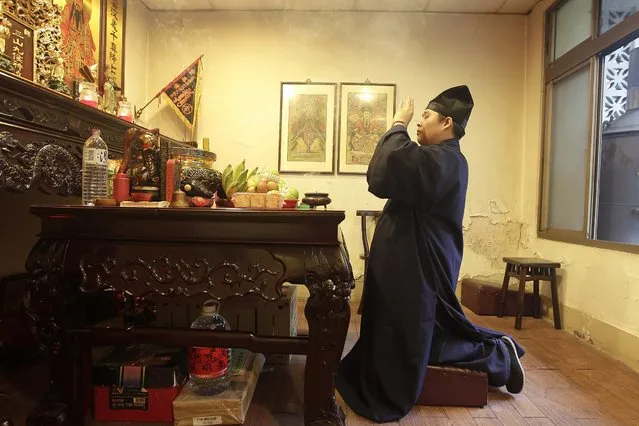
Lu Wei-ming, pirest of the Wei-ming temple, prays while burning incense at the temple in New Taipei city January 8, 2015. (Photo by Pichi Chuang/Reuters)
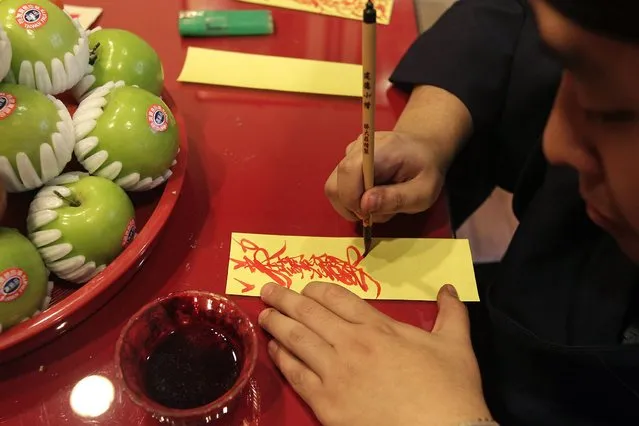
Lu Wei-ming, priest of the Wei-ming temple, writes on a Taoist paper amulet at the temple in New Taipei city January 8, 2015. (Photo by Pichi Chuang/Reuters)
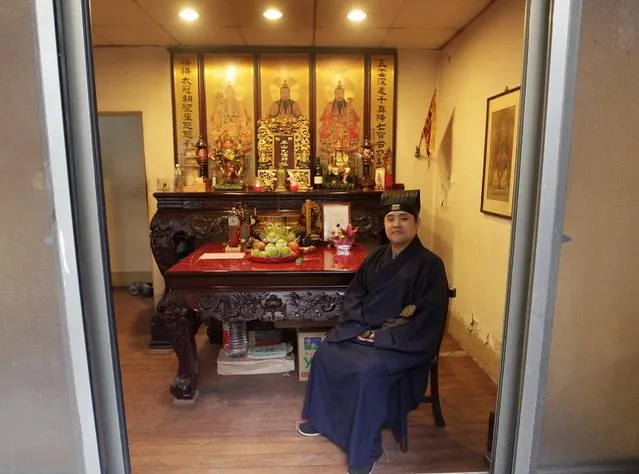
Lu Wei-ming, priest of the Wei-ming temple, poses in front of an altar in New Taipei city January 8, 2015. (Photo by Pichi Chuang/Reuters)
21 Jan 2015 13:06:00,
post received
0 comments
